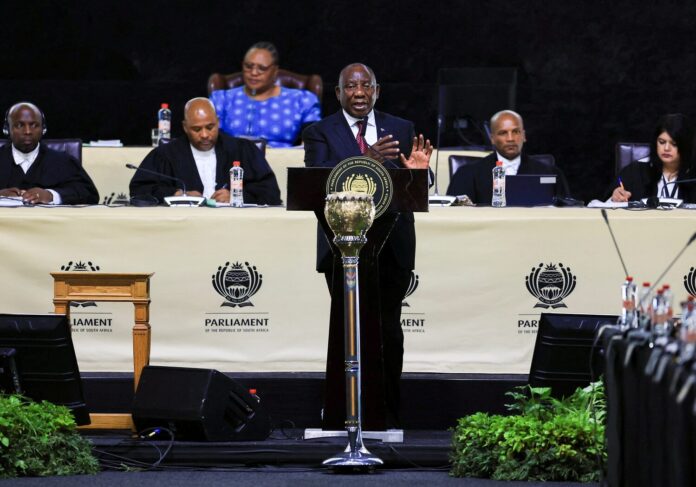Written by Faith Mwende
South Africa’s National Treasury has announced an ambitious drive to secure at least $500 million in foreign currency financing for the 2025/26 fiscal year.
This development comes on the heels of parliament’s approval of the long-delayed Appropriation Bill on July 23, which ended a months-long budget stalemate that had threatened the country’s fiscal credibility.
The funding initiative is part of a broader effort to strengthen South Africa’s debt management strategy while navigating political compromise within the Government of National Unity.
The coalition, led by the African National Congress (ANC) alongside the Democratic Alliance and smaller parties, recently resolved its internal disagreements by scrapping a controversial VAT hike. Additionally, President Cyril Ramaphosa dismissed a minister implicated in misconduct, clearing the way for the passage of key departmental budgets.
“This funding initiative aims to diversify the sovereign’s hard currency funding toolkit beyond a traditional Eurobond, reduce execution risk and minimise the all-in cost of funds,” the Treasury said in a statement on Friday. The goal is to adapt liability management tools to changing market dynamics and reduce reliance on conventional instruments.
To achieve this, the Treasury is targeting a select pool of eligible partners, including primary dealers in South African government securities, major global arranging banks, multilateral agencies, institutional investors, and other large-scale regulated financial entities.
The call for proposals includes a range of instruments such as bilateral term loans, private placements of floating rate notes, repurchase agreements, cross-currency swaps, and structured notes.
The Treasury is especially interested in ESG-linked financing options, aligning with a broader global trend in sustainable debt. So far in 2025, emerging markets have issued around $61.9 billion in ESG-labeled bonds, according to data.
Submissions will be judged based on several criteria, including cost efficiency, speed of execution, resilience to currency risk, and how well the instruments match South Africa’s debt service profile. Interested parties must submit proposals by August 6, with final decisions expected by August 29.
Despite the urgency, the Treasury emphasized that the plan is exploratory rather than binding. It reserves the right to accept or reject any proposal.
South Africa’s fiscal outlook remains under pressure. In May, the government revised its consolidated budget deficit projection to 4.8% of GDP, up from the 4.6% forecast in March. Gross government debt is now expected to stabilize at 77.4% of GDP.
The country’s latest move also reflects a growing challenge among African economies to secure affordable debt amidst global market uncertainty.
While emerging market sovereign debt issuance has reached $154.2 billion this year, much of that has flowed into Eastern Europe and the Middle East. Other African nations like Angola have paused international borrowing altogether, and Ghana is now leaning heavily on domestic markets after exiting default.
South Africa’s decision to explore alternative funding channels aims to keep its fiscal plans on track while positioning itself more competitively in a tight and evolving global capital market.



















